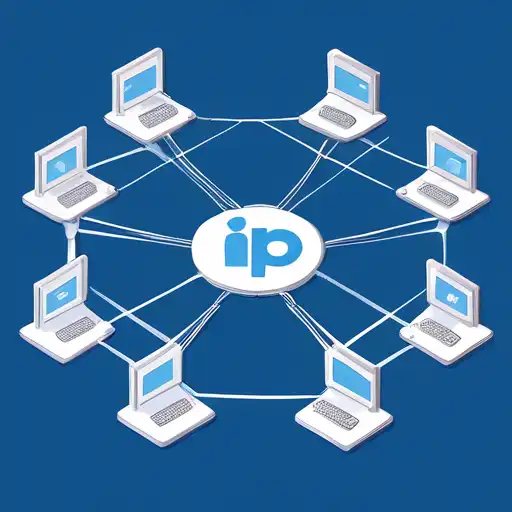Introduction to IP Addresses
In the digital world, IP addresses play a crucial role in connecting devices across the internet. An IP (Internet Protocol) address is a unique identifier assigned to each device connected to a network, enabling them to communicate with each other. This guide will walk you through the basics of IP addresses, their types, and how they function within networks.
What is an IP Address?
An IP address is a numerical label assigned to each device participating in a computer network that uses the Internet Protocol for communication. It serves two main functions: identifying the host or network interface and providing the location of the host in the network.
Types of IP Addresses
There are two primary versions of IP addresses in use today:
- IPv4 (Internet Protocol version 4): The most widely used version, consisting of four numbers separated by dots (e.g., 192.168.1.1).
- IPv6 (Internet Protocol version 6): Developed to deal with the exhaustion of IPv4 addresses, it uses eight groups of four hexadecimal digits (e.g., 2001:0db8:85a3:0000:0000:8a2e:0370:7334).
How IP Addresses Work
IP addresses are the backbone of internet communication. When you type a website's name into your browser, a Domain Name System (DNS) server translates it into an IP address, directing your request to the correct server. The server then sends the requested data back to your device's IP address.
Static vs. Dynamic IP Addresses
IP addresses can be either static or dynamic:
- Static IP Addresses: These remain constant, making them ideal for hosting websites or services.
- Dynamic IP Addresses: Assigned by a DHCP server, these can change over time and are commonly used for consumer devices.
Why Understanding IP Addresses is Important
Grasping the concept of IP addresses is essential for anyone looking to understand how the internet works. Whether you're setting up a home network, troubleshooting connectivity issues, or diving into network security, a solid foundation in IP addressing is invaluable.
Conclusion
IP addresses are fundamental to the operation of the internet and networks. By understanding the basics of IP addresses, you're better equipped to navigate the digital world, from setting up your home network to exploring more advanced networking concepts.
For more insights into networking basics, check out our guide on Networking Fundamentals.
